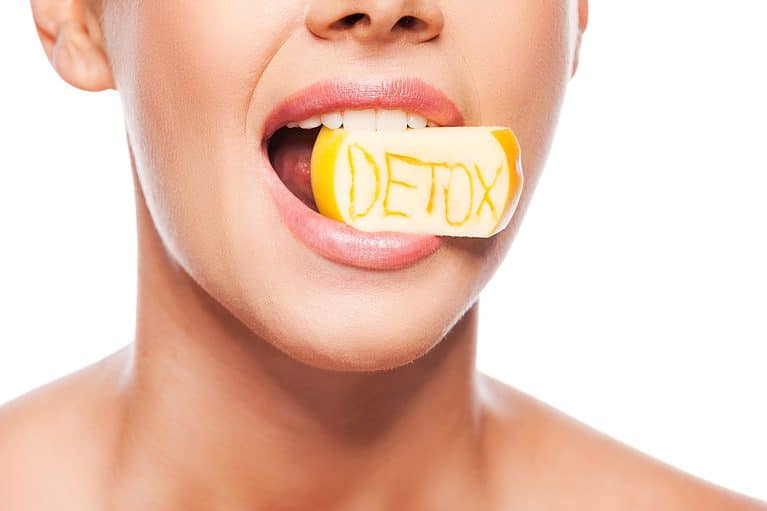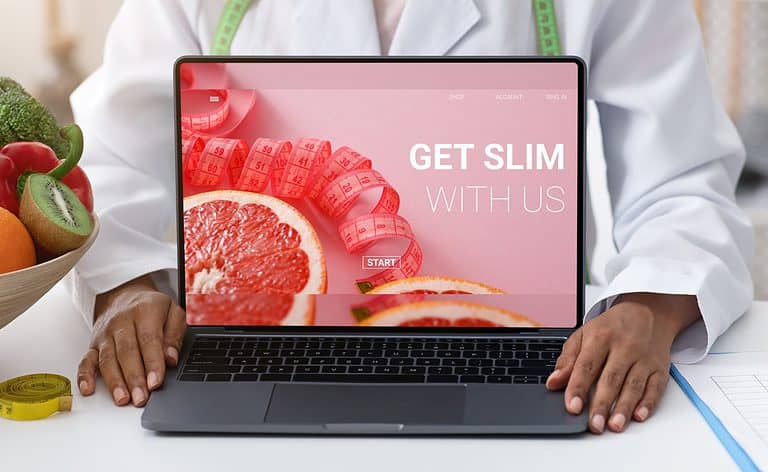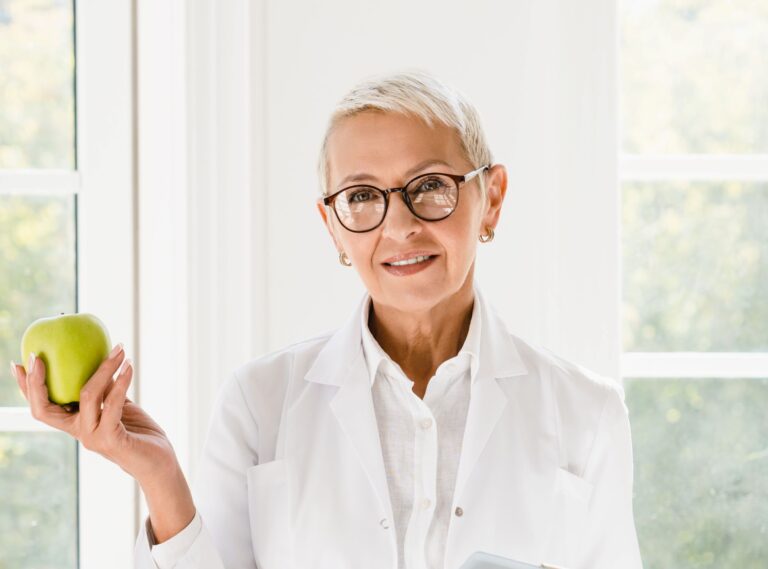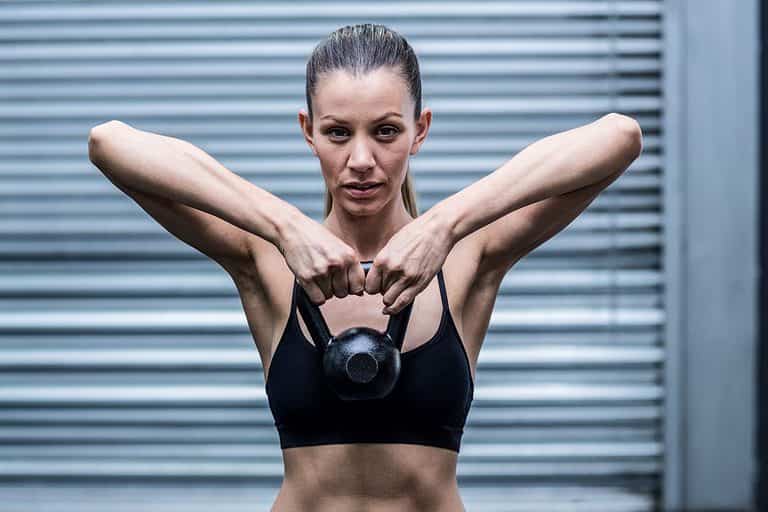21 Vitamins and Minerals to Help You Lose Weight and Stay Young
I want to emphasize that developing and maintaining a healthy weight requires a balanced diet, regular exercise, and healthy lifestyle choices. Yet, several vitamins and minerals can aid in weight loss by regulating hormones, boosting energy levels, reducing inflammation, and regulating metabolism.
It is crucial to remember that while vitamins and minerals might aid in weight loss, they cannot take the place of a balanced diet and active lifestyle. It is always preferable to obtain your nutrients from a diet that is well-balanced, varied, and abundant in fruits, vegetables, lean proteins, whole grains, and healthy fats. The best course of action is to speak with a certified dietitian or medical professional if you have any specific questions about your nutrient consumption or weight loss objectives.
The following list of 21 nutrients can help you lose weight naturally and healthily while making you look younger:

1.Vitamin A
Our eyesight can begin to degrade as we get older, making it challenging to see and carry out regular tasks. Yet there are things we can do to keep our eyes healthy, such making sure we get enough vitamin A.
A crucial ingredient for maintaining eye health is vitamin A. In addition to assisting our eyes in adjusting to variations in light, it is essential for preserving the cornea, the transparent outer layer of the eye. Our eyes might become dry, scratchy, and light-sensitive if we don’t get enough vitamin A.
Aim to eat foods high in vitamin A, such as leafy greens, carrots, sweet potatoes, and liver, to ensure that you are getting enough of it in your diet. You can fulfill your needs for vitamin A by taking supplements.

2.Vitamin B1 (Thiamine)
It can get harder to keep up a healthy weight and level of energy as you get older. Thiamine, or vitamin B1, is one substance that can assist with both of these problems.
Thiamine is crucial for maintaining a healthy metabolism since it plays a role in turning carbs into energy. Moreover, it contributes to a healthy digestive system by aiding in optimal nutrient absorption and food breakdown.
Include healthy grains, nuts, beans, and lean meats in your diet to make sure you’re getting enough thiamine. See your doctor about a supplement if you’re worried you’re not receiving enough thiamine.
You may promote good weight management and keep your energy levels at their peak as you age by giving thiamine a high priority in your diet.

3.Vitamin B2 (Riboflavin)
It can get more difficult as you get older to keep a healthy metabolism and energy level. Thankfully, riboflavin, or vitamin B2, can promote these crucial processes.
It is crucial to maintain a healthy metabolism since riboflavin is necessary for turning food into energy. Red blood cells, which carry oxygen throughout the body and aid in the maintenance of energy levels, are also produced with its assistance.
Include foods like dairy, leafy greens, and lean meats to ensure that you consume enough riboflavin. If you’re worried that you’re not getting enough riboflavin, ask your doctor about a supplement.
You can support a healthy metabolism and energy generation as you age by making riboflavin a priority in your diet, which will help you keep a healthy weight and have enough energy.

4.Vitamin B3 (Niacin)
Maintaining good blood sugar levels and insulin sensitivity is crucial as you age. Niacin, or vitamin B3, is one nutrient that can aid with both of these.
Niacin is essential for the generation of energy since it aids in the transformation of meals into body fuel. Moreover, it enhances insulin sensitivity and helps control blood sugar levels, both of which reduce the risk of type 2 diabetes.
Niacin maintains healthy skin in addition to its functions in regulating blood sugar and energy. It aids in maintaining the skin’s ability to act as a barrier, keeping irritants and moisture out and moisture in.
Include items like poultry, fish, beans, and whole grains in your diet to guarantee enough niacin intake.

5.Vitamin B5 (Pantothenic acid)
Maintaining normal adrenal function and energy levels becomes more crucial as you age. Pantothenic acid, generally referred to as vitamin B5, is one substance that can aid with both of these.
The body uses pantothenic acid to help turn food into fuel, which is why it is crucial for energy generation. Moreover, it is essential for promoting healthy adrenal function, which is necessary for stress management and maintaining optimum energy levels.
Include foods like avocados, mushrooms, sweet potatoes, and whole grains in your diet to guarantee appropriate pantothenic acid intake.
You may support healthy energy generation and adrenal function as you age by making pantothenic acid a priority in your diet. This will help you maintain a healthy weight and enough energy levels.

6.Vitamin B7 (Biotin)
Supporting good blood sugar levels and preserving healthy skin and hair are vital as you age. Vitamin B7, often known as biotin, is one supplement that can aid with both of these.
Because biotin is necessary for the metabolism of fats, proteins, and carbs, it is crucial for controlling blood sugar levels and preserving a healthy metabolism. Moreover, it maintains healthy skin and hair by fostering the development and upkeep of these tissues.
Include items like eggs, almonds, and whole grains in your diet to guarantee optimal biotin intake. Supplements can also be beneficial, but before taking any, consult your physician.
You can maintain healthy blood sugar levels and youthful-looking skin and hair as you age by making biotin a priority in your diet.

7.Vitamin B9 (Folic acid)
Supporting healthy cell function becomes more crucial as you age in order to preserve overall health. Vitamin B9, usually referred to as folate or folic acid, is one supplement that can aid with this.
Folate is crucial for optimal cell development and operation, which makes it crucial for maintaining healthy tissues and organs. Also, because it might lessen the risk of birth abnormalities, it is crucial for maintaining a healthy pregnancy.
Include foods like beans, leafy greens, and fortified cereals in your diet to make sure you’re getting enough folate. Supplements can also be beneficial, but see your doctor first.
As you age, you may support healthy cell activity and maintain general health by giving folate a priority in your diet.

8.Vitamin B12 (Cobalamin)
It can get more difficult as you get older to keep a healthy metabolism and energy level. Thankfully, cobalamin, a kind of vitamin B12, can promote these vital processes.
Maintaining a healthy metabolism depends on B12 because it is necessary for the metabolism of fat and protein. Red blood cells, which carry oxygen throughout the body and aid in the maintenance of energy levels, are also produced with its assistance.
Foods like beef, liver, fish, and fortified cereals can help you get enough B12 in your diet. Speak to your doctor about a supplement if you’re worried that you’re not receiving enough B12.
You can support a healthy metabolism and energy generation as you age by prioritizing B12 in your diet, which will help you keep a healthy weight and have enough energy to go through the day.

9.Vitamin C (Ascorbic acid)
As you become older, keeping your immune system strong and minimizing inflammation become more crucial for overall health. The nutrient vitamin C, often known as ascorbic acid, can aid with both of these.
One of the main causes of many chronic diseases, inflammation, can be reduced in the body thanks to the potent antioxidant vitamin C. Moreover, it promotes healthy adrenal function, which can increase energy levels, and it supports a strong immune system by assisting healthy white blood cell function.
Include foods like citrus fruits, berries, and leafy greens in your diet to guarantee enough vitamin C intake.
You can lessen inflammation, support a strong immune system, and have more energy as you age by making vitamin C a priority in your diet.

10.Vitamin D
In order to avoid diseases like osteoporosis, keeping healthy bone density becomes more crucial as you age. As it facilitates the body’s absorption of calcium, which is necessary for building strong bones, vitamin D is a crucial nutrient for this.
As women age, keeping a healthy weight can help with the regulation of metabolism, which is facilitated by vitamin D. Also, it aids in boosting a strong immune system and minimizing bodily inflammation.
Spend time in the sun, eat foods like fatty fish, egg yolks, and fortified dairy products, or incorporate them in your diet to ensure you get enough vitamin D.
You can support healthy bone density and metabolism as you age by giving vitamin D a priority in your diet. This will help you keep your weight in check and stay in good general health.

11.Vitamin E
Free radicals are unstable chemicals that can destroy cells and speed up aging and disease. Vitamin E is a potent antioxidant that can help shield cells from damage caused by free radicals. Vitamin E has been demonstrated to help reduce inflammation in the body in addition to its antioxidant qualities, which can lower the chance of developing chronic diseases.
The maintenance of healthy skin and hair is another function of vitamin E. It can enhance skin elasticity, which can lessen the visibility of wrinkles and fine lines, as well as UV damage protection. Vitamin E can also help promote healthy hair growth and stop hair loss. Vegetable oils, nuts, seeds, and leafy green vegetables are foods high in vitamin E. Your overall health and the healthy aging process can be supported by including vitamin E in your diet.

12.Vitamin K
Vitamin K is one mineral that may be particularly advantageous for women as they age.
In order to maintain healthy blood coagulation and reduce excessive bleeding and bruising, vitamin K is crucial. It is essential for maintaining bone health since it aids in the body’s absorption of calcium and encourages the creation of proteins needed to create strong bones. Foods high in vitamin K include broccoli, Brussels sprouts, green beans, spinach, and other lush green vegetables like kale and spinach. In various vegetable oils and meats, it can also be discovered.
Consider consulting with a certified dietitian or healthcare provider if you’re worried about obtaining enough vitamin K in your diet. They will be able to tell you if you can satisfy your needs by eating a variety of foods or whether you need to add vitamin K supplements to your diet. Your general wellness and good aging can be supported by including vitamin K in your diet.

13.Calcium
Calcium is a necessary mineral that is vital for keeping strong bones and muscles. Women’s bones are more prone to osteoporosis, a disorder that weakens and makes bones brittle, and fractures as they age. Calcium supplementation or appropriate dietary calcium intake can support healthy bone density and lower the incidence of fractures.
Calcium is important for maintaining bone health and is also essential for maintaining muscular health. Particularly in elderly persons, adequate calcium consumption can help prevent muscle cramps and weakening. In actuality, calcium helps control heartbeat and is essential for muscle contraction.Women should make sure they consume adequate calcium in their diet, especially after menopause when bone density begins to decrease. For women over 50, 1200 milligrams of calcium per day is advised. Dairy goods, leafy greens, and fortified meals like cereal and orange juice are all excellent sources of calcium.

14.Chromium
Chromium is a mineral that is critical for sustaining a healthy metabolism and preserving stable blood sugar levels, both of which are crucial for women as they age. Women’s metabolisms naturally slow down as they age, making it more challenging to lose weight and keep it off. By enhancing insulin sensitivity, chromium aids in the body’s ability to control blood sugar levels and support a healthy metabolism.
In addition, women who are trying to lose weight may benefit from chromium’s ability to lessen cravings for sweet and high-carbohydrate foods. This is due to the fact that chromium aids in the regulation of insulin release, which can help minimize blood sugar spikes and crashes that might trigger cravings. Broccoli, healthy grains, and lean meats like chicken and turkey are excellent sources of chromium.

15.Iron
Iron is a necessary mineral that is crucial for sustaining general health and wellbeing, especially in elderly women. Hemoglobin, a protein found in red blood cells that transports oxygen throughout the body, can only be produced with the help of iron. This means that sufficient iron intake is essential for good oxygenation of the blood, which is crucial for sustaining levels of energy and promoting general health.
Creating energy requires the use of iron as well. It facilitates the body’s ability to transform food into usable energy, enhancing overall vigor and assisting in the fight against weariness. Along with supporting cognitive function, iron also affects immune system health. Due to blood loss during menstruation and pregnancy, women are more likely to have iron deficiency, therefore it’s crucial for older women to make sure they’re getting enough iron. Lean meats, beans and lentils, and leafy greens are all excellent sources of iron.

16.Magnesium
Magnesium is a mineral that is crucial for preserving general health and wellbeing, especially in elderly women. As women age, preserving mobility and independence depends on magnesium’s crucial contribution to the maintenance of healthy muscular and nerve function. Magnesium is an essential mineral for preventing weariness and preserving vitality because it is required for the creation of energy.
In addition, magnesium helps maintain immune system, bone, and cardiovascular health. Leafy greens, nuts and seeds, whole grains, as well as beans and legumes, are excellent sources of magnesium. Magnesium supplements are additionally offered in addition to dietary sources. Before using magnesium supplements, it’s crucial to consult a healthcare professional because too much of the mineral can be dangerous.

17.Zinc
In particular for aging women, zinc is a vital mineral that is needed for sustaining general health and wellbeing. Healthy immunological function is vital for warding off illness and infection, and it depends on zinc. Because women’s immune systems may deteriorate with age, it’s even more crucial for them to consume zinc.
Zinc aids in the creation of energy in addition to aiding immunological function. It aids in the body’s ability to transform food into usable energy, which can lessen weariness and boost general vitality.
Lean meats, shellfish, nuts and seeds, beans and legumes, and lean meats are all excellent sources of zinc. There are additional zinc supplements on the market, but before taking any new supplements, it’s necessary to consult a healthcare professional.

18.Selenium
A mineral called selenium is necessary for preserving general health and wellbeing, especially in aged women. Selenium aids in reducing inflammation, which is crucial for warding off chronic illnesses and promoting healthy aging. Furthermore, selenium promotes healthy thyroid function, which is crucial for controlling metabolism and preserving energy levels.
Seafood, lean meats, healthy grains, nuts, and seeds are all good sources of selenium. The amount of selenium in plant-based diets can vary, though, as can the selenium levels in the soil.
Selenium supplements are an additional option to food sources. Before taking selenium supplements, it’s crucial to see a healthcare professional because too much selenium can have negative effects.

19.Potassium
Potassium is a necessary mineral that is crucial for preserving general health and wellbeing, especially in elderly women. In order to maintain appropriate blood pressure and avoid dehydration, potassium helps the body’s fluid balance be regulated. Furthermore, strong muscle function is essential for preserving women’s independence and mobility as they age. This is made possible by potassium.
Bananas, sweet potatoes, and spinach are a few examples of fruits and vegetables that are good providers of potassium. But, it’s possible that many women aren’t eating enough potassium.
Potassium supplements are an additional option to food sources. Before using potassium supplements, it’s crucial to consult a healthcare professional because too much potassium might be dangerous.

20.Manganese
The mineral manganese is crucial for sustaining general health and wellbeing, especially in elderly women. The support of a healthy metabolism, which is essential for maintaining a healthy weight and preventing age-related metabolic diseases, is provided by manganese.
Manganese is a crucial mineral for maintaining bone health and avoiding osteoporosis since it is required for proper bone growth in addition to supporting metabolism.
Leafy greens, nuts, and whole grains are excellent sources of manganese. Yet, it’s possible that a lot of women’s diets are deficient in manganese.
Manganese supplements are an additional option to food sources. Before taking any supplements containing manganese, it’s crucial to consult a healthcare professional because too much manganese can be dangerous.

21.Omega-3 fatty acid
Essential fatty acids of the omega-3 variety are necessary for supporting general health and wellbeing, especially in elderly women. Omega-3 fatty acids are crucial for maintaining healthy brain function, decreasing inflammation, and guarding against chronic illnesses like arthritis, heart disease, and some types of cancer.
Fatty fish like salmon, sardines, and tuna as well as flaxseeds, chia seeds, and walnuts are excellent sources of omega-3s. Yet, it’s possible that many women don’t consume enough omega-3s in their diets.In addition to dietary sources, there are supplements that include omega-3. It’s important to speak with a doctor before taking omega-3 supplements because they may interact negatively with some medications.
It is more crucial than ever to focus on receiving the correct nutrients to preserve good health and fend off chronic diseases as you age since your nutritional needs alter.
While vitamins and minerals can aid in weight loss and reverse aging, a balanced diet and way of life must still be maintained. The best method to ensure that you are getting all the nutrients you need is to have a diet that is well-balanced, varied, and abundant in fruits, vegetables, lean proteins, whole grains, and healthy fats.
It is best to consult a trained dietitian or healthcare professional if you have any particular questions about your nutrient consumption or weight reduction objectives.






